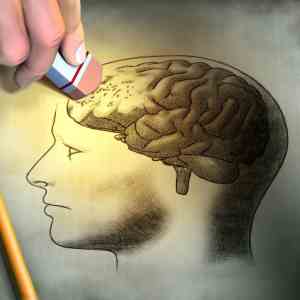

MedFriendly®


Amnesia
Amnesia is a loss of memory caused by brain damage
or a very serious emotional trauma. There are many
different types of amnesia, such as anterograde
amnesia (PTA). Anterograde amnesia is a loss or
disturbance of memory for events that occur after a
trauma, disease, or traumatic emotional event that
caused the memory disturbance. This is typically
referred to as short-term memory loss. Retrograde
amnesia is a loss or disturbance of memory for events
that occurred before a trauma, disease, or a traumatic
emotional event that caused the memory disturbance.
FEATURED BOOK: The Memory Book: Classic Guide to Improving Your Memory
Long-term memories can be affected by retrograde amnesia. A person with retrograde
amnesia may have a partial or total inability to recall past experiences. PTA is an
inability to form consistent day-to-day memories due to traumaitc brain injury. PTA can
also refer to distrubance or loss of memory after a psychological trauma. The area of the
brain that plays the most important part in memory formation is the hippocampus, a
seahorse-shaped structure located in the each temporal lobe (an area of brain tissue
located on the side of the head, behind the ear). An amnesiac is someone suffering from
amnesia. Amnesic and amnestic means characterized by amnesia. Amnestic also
means a substance that causes amnesia. Amnesia comes from the Greek word "a"
meaning "without," and the Greek word "mnemonic" meaning "memory." Put the two
words together and you have, "without memory."
"Where Medical Information is Easy to Understand"™















